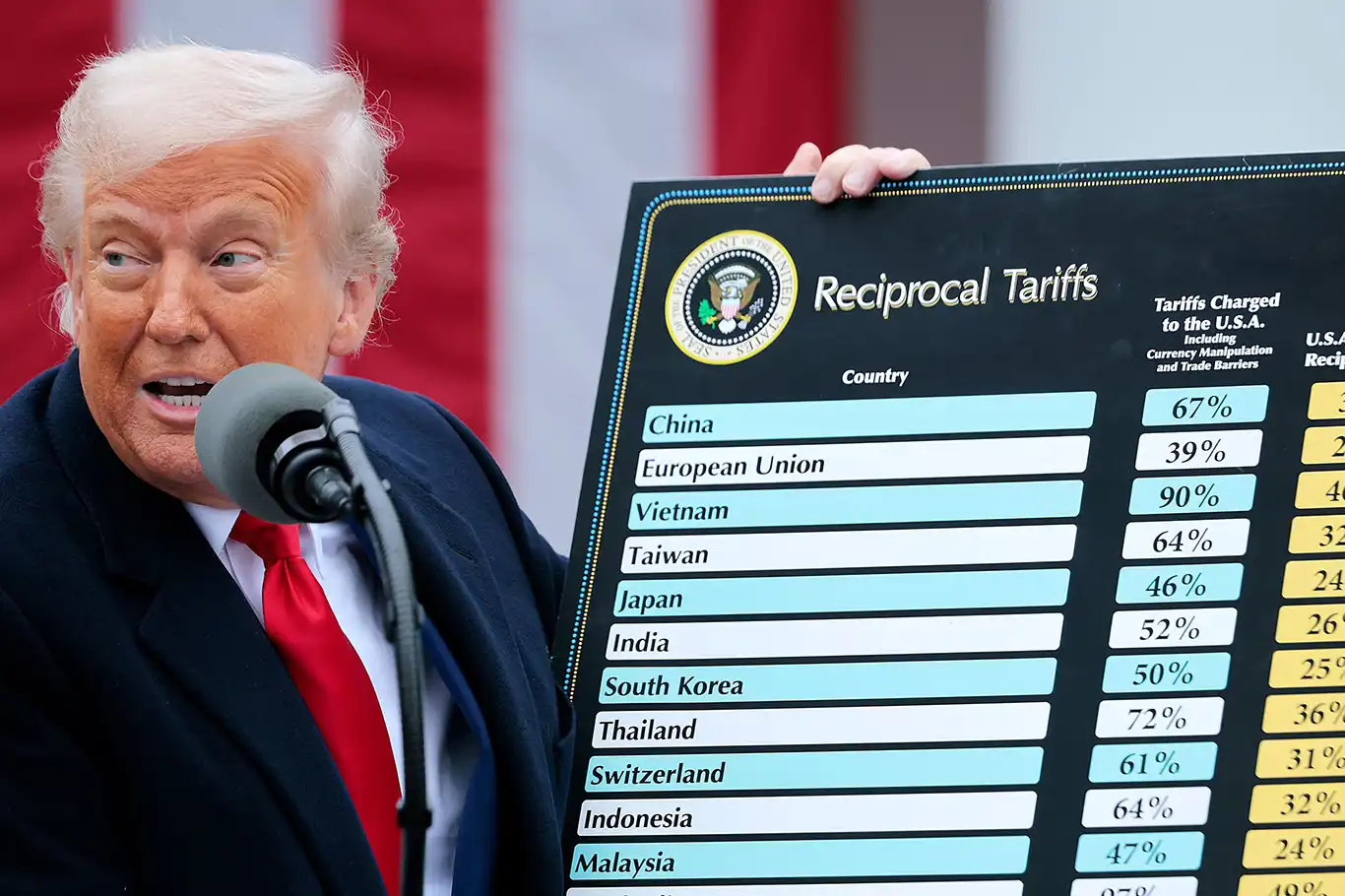Federal appeals court rules most Trump tariffs illegal under IEEPA


President Donald Trump’s trade agenda suffered a major legal setback on August 29, 2025, when the U.S. Court of Appeals for the Federal Circuit ruled 7-4 that most of his global tariffs, including those targeting China, Canada, and Mexico, are illegal under the International Emergency Economic Powers Act (IEEPA).
The court upheld a May 2025 ruling by the U.S. Court of International Trade, concluding that IEEPA does not grant the president the authority to impose sweeping tariffs, as the power to levy taxes and duties resides exclusively with Congress. The Federal Circuit delayed enforcement of its ruling until October 14, 2025, giving the Trump administration time to appeal to the U.S. Supreme Court.
The tariffs in question, initiated in April 2025 and branded as “reciprocal” and “Liberation Day” tariffs, imposed a baseline 10% duty on imports from nearly all U.S. trading partners, with specific duties up to 50% on countries like China, justified by the administration as measures to address trade imbalances and combat fentanyl trafficking. Additional tariffs imposed in February 2025 targeted China, Canada, and Mexico, citing national security concerns over drug smuggling. The court described these measures as “unbounded in scope, amount, and duration,” exceeding executive authority under IEEPA—a 1977 law designed for sanctions and asset freezes, not broad tariffs. The ruling does not affect tariffs imposed under other authorities, such as Section 232 of the Trade Expansion Act of 1962 on steel and aluminum.
Despite the setback, the administration remains committed to its trade strategy. U.S. Trade Representative Jamieson Greer, appearing on Fox News on August 30, 2025, affirmed ongoing negotiations with key trading partners, including the European Union, Japan, and South Korea. “The president’s tariffs are a critical tool to level the playing field for American workers and manufacturers,” Greer said, emphasizing confidence in a Supreme Court reversal. White House spokesperson Kush Desai echoed this sentiment, insisting that Trump lawfully exercised tariff powers granted by Congress and that the measures remain in effect.
Trump himself responded on Truth Social, labeling the ruling “highly partisan” and warning that, if upheld, it would “literally destroy the United States of America.” He vowed to appeal, expressing confidence that the Supreme Court would reverse the decision, stating, “Now, with the help of the United States Supreme Court, we will use [tariffs] to the benefit of our Nation, and Make America Rich, Strong, and Powerful Again!” Attorney General Pam Bondi is leading the legal team preparing the appeal before the October 14 deadline, potentially placing the case on the Supreme Court’s 2025–2026 docket.
The ruling has ignited debate over its economic and political implications. Tariffs have been central to Trump’s foreign policy, generating $142 billion in revenue by July 2025, more than double the previous year’s figures. Critics, including a coalition of 12 Democratic-led states and five small U.S. businesses, argue that tariffs impose significant costs on consumers and companies, projecting an average household burden of $1,200–$2,800 in 2025. Economists, such as Dr. Linda Yueh of Oxford University, warn that uncertainty surrounding the litigation could dampen economic activity, as trading partners may hesitate to engage with the U.S. until the Supreme Court rules.
Supporters, including Treasury Secretary Scott Bessent and Commerce Secretary Howard Lutnick, maintain that tariffs are vital to reducing the trade deficit and protecting national security. They warn that invalidating the tariffs could undermine recent trade agreements with the EU, Japan, and the UK, which had lowered rates from their April levels.
The Supreme Court, with a 6-3 conservative majority, offers no certainty of a favorable outcome. Recent rulings under the “major questions doctrine” have limited executive authority in cases where Congress has not explicitly granted powers, such as the 2023 decision blocking President Biden’s student loan forgiveness program. Legal experts, including Carl Tobias of the University of Richmond School of Law, suggest the Supreme Court may view Trump’s use of IEEPA as an overreach, though a final ruling could extend into June 2026.
If the Supreme Court upholds the Federal Circuit’s decision, importers could seek refunds for tariffs already paid, a process involving U.S. Customs and Border Protection and potentially the Court of International Trade, potentially amounting to billions in federal revenue losses. Trump still retains alternative legal avenues, including Section 301 of the Trade Act of 1974 for unfair trade practices or Section 338 of the Trade Act of 1930, allowing up to 50% tariffs on specific countries, though these require investigations or time-limited measures.
As the legal battle heads to the Supreme Court, the case is poised to redefine the balance of power between the executive and legislative branches on trade policy, with broad implications for the U.S. economy and global trade. Meanwhile, Trump’s tariffs remain in effect, and his administration continues to pursue new trade agreements, undeterred by the Federal Circuit’s ruling. (ILKHA)
LEGAL WARNING: All rights of the published news, photos and videos are reserved by İlke Haber Ajansı Basın Yayın San. Trade A.Ş. Under no circumstances can all or part of the news, photos and videos be used without a written contract or subscription.
A wave of dissent has erupted inside the United Nations, as more than 500 employees of the Office of the High Commissioner for Human Rights (OHCHR) pressed High Commissioner Volker Türk to openly recognize Israel’s war on Gaza as a genocide.
Türkiye’s seasonally adjusted unemployment rate declined to 8.0% in July, according to official figures released by the Turkish Statistical Institute (TurkStat) on Friday.
The Central Bank of the Republic of Türkiye (CBRT) reported a slight decline in its total reserves, dropping by $183 million to $176.327 billion for the week ending August 22, 2025, according to the bank’s weekly monetary and banking statistics released on Thursday.
Türkiye’s foreign trade activity posted strong growth in July 2025, with both exports and imports increasing, while the monthly trade deficit narrowed, according to provisional figures released Thursday by the Turkish Statistical Institute (TurkStat) in cooperation with the Ministry of Trade.